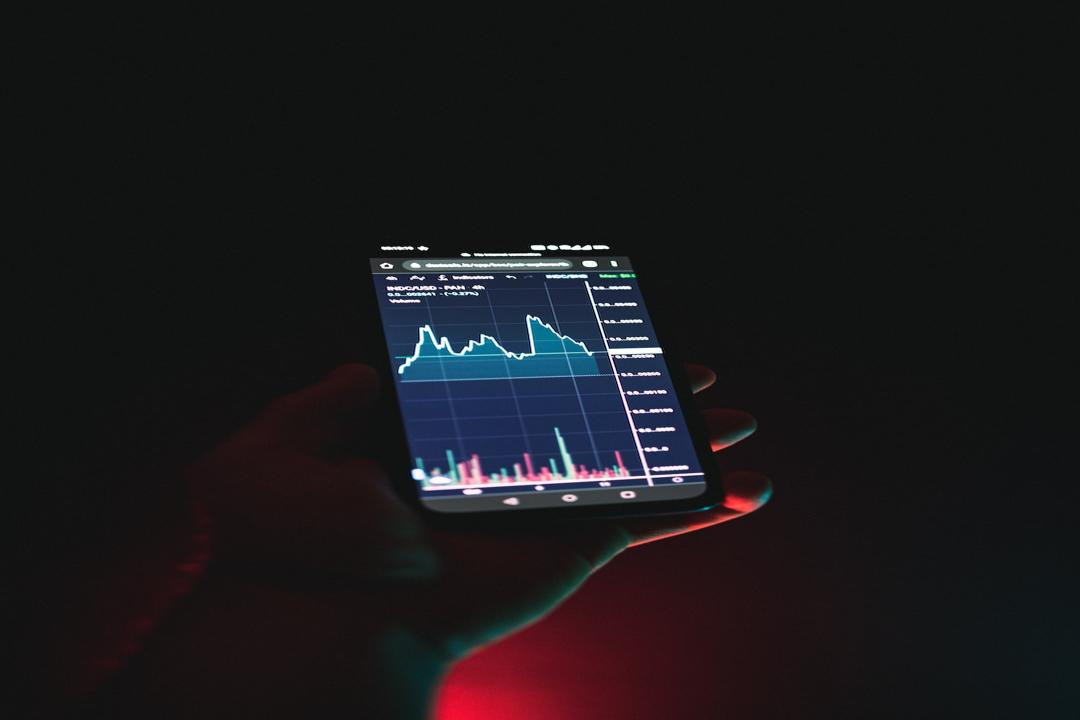How should beginners choose a cryptocurrency exchange? What should they pay attention to in order to enhance security? These are questions that many users have. This article will provide detailed information on the details to be noted when choosing a cryptocurrency exchange.
Table of Contents
What is a virtual/cryptocurrency exchange?
What should users pay attention to when choosing a cryptocurrency exchange?
Key factors in exchange selection
Security assessment: Reserves of the exchange
Global ranking of cryptocurrency exchanges
Top ten overseas cryptocurrency exchanges
Recommended “local” cryptocurrency exchanges in Taiwan
Points to note about exchanges and how to avoid pitfalls
5 important points to note
How to avoid pitfalls
The future trends of exchanges
The choice of a cryptocurrency exchange is a major concern for every beginner entering the field. With rampant scams in the cryptocurrency industry, it is necessary for users to know how to choose a relatively safe exchange among the numerous exchanges worldwide.
This article provides the key points to consider and helps you choose a relatively secure exchange from the vast market.
What is a virtual/cryptocurrency exchange?
In addition to providing the purchase, sale, and exchange of cryptocurrencies, exchanges also offer various derivative financial products, allowing traders to invest in the cryptocurrency market using more complex strategies.
These derivative services include perpetual contracts, staking, margin trading, etc., which allow users to invest in the future price of cryptocurrencies or hedge their positions. Additionally, based on whether there is a centralized authority controlling the exchange, cryptocurrency exchanges can be classified into the following two forms:
Centralized Exchange (CEX): Refers to exchanges controlled by a centralized institution.
Decentralized Exchange (DEX): Refers to exchanges purely controlled by smart contracts.
The following content mainly focuses on “centralized exchanges.”
What should users pay attention to when choosing a cryptocurrency exchange?
When choosing a cryptocurrency exchange, users should evaluate its security, fee structure, user reviews, supported currencies, and regulatory compliance.
A good exchange should provide strong security measures, reasonable transaction fees, good customer service, and convenient access to funds. Therefore, it is essential to research and compare different options before choosing an exchange.
Key factors in exchange selection
The author has compiled several key factors to consider when choosing an exchange:
Security: The primary consideration is the security of user assets. Users can check whether the platform’s reserves are sufficient, the level of cybersecurity protection, and whether there have been any hacker attacks in the past.
Liquidity: A highly liquid exchange can ensure prompt execution of transactions and reduce slippage caused by market fluctuations.
Customer service: Whether the exchange can provide timely user support to resolve any issues that may arise during the transaction process.
Product variety: Different exchanges may offer significantly different products, even for similar products such as fees and product returns. These factors can be considered.
Reputation: Although the reputation cannot be equated with “security” after the FTX incident, there are currently many fraudulent exchanges. It is advisable to confirm whether many people are using the exchange, the reputation, and the establishment time to filter out many scams.
Security assessment: Reserves of the exchange
Since security is the most important factor in choosing an exchange, readers who want to know the reserves of various exchanges can visit CoinMarketCap and CoinGecko to check the current announced reserves.
A good exchange should conduct regular security audits and disclose reserves to ensure the proper protection of user assets.
Global ranking of cryptocurrency exchanges
Users are advised to choose larger and mainstream exchanges for better security. For example, based on the ranking on CoinMarketCap, exchanges with green scores indicate platforms with relatively large user bases. If they display orange or even red scores, users should be cautious about the associated risks.
CoinMarketCap indicates that the score is based on the average liquidity of the exchange, trading volume, and the level of confidence in the reported trading volume provided by the exchange. The following is the current top 10 ranking of exchanges provided by the platform:

Top 10 ranking of exchanges. Image source: CoinMarketCap
Top ten overseas cryptocurrency exchanges
Among the current top ten global exchanges, apart from Coinbase announcing in September 2023 that it would no longer serve users in Taiwan due to security and compliance issues and Upbit requiring a Korean mobile phone for registration, the registration process for the other eight exchanges is relatively convenient for Taiwanese users.
Binance:
Headquarters: Unknown
Support for Chinese: Yes
Number of currencies: 404
24-hour trading volume: $17.2 billion
Established in 2017 by Canadian engineer Changpeng Zhao (CZ), Binance is currently the largest cryptocurrency exchange in terms of trading volume globally. Users can engage in spot trading, perpetual contracts, leverage, NFT, and other trading services on the platform. Binance’s reserve proof is currently available.
Note: Click on the referral link for registration on Binance Dynamic Zone or use our referral code: O1DYUZDE for permanent 10% trading fee discount. It is more cost-effective than registering on your own.
Coinbase:
Headquarters: United States
Support for Chinese: No
Number of currencies: 242
24-hour trading volume: $3.5 billion
The largest cryptocurrency platform in the United States and the first publicly listed cryptocurrency exchange. It is also the largest custodian of Bitcoin spot ETFs in the United States.
Bybit:
Headquarters: Seychelles
Support for Chinese: Yes
Number of currencies: 549
24-hour trading volume: $4.5 billion
Provides spot trading, contracts, liquidity mining, and other services. Bybit’s reserve proof can be viewed here.
OKX (formerly OKEx):
Headquarters: Seychelles
Support for Chinese: Yes
Number of currencies: 319
24-hour trading volume: $1.5 billion
Also offers spot trading, perpetual contracts, Web3 wallets, and other functions. OKX’s reserve proof can be viewed here.
Upbit:
Headquarters: South Korea
Support for Chinese: Yes
Number of currencies: 190
24-hour trading volume: $3.1 billion
The largest cryptocurrency exchange in South Korea. Due to restrictions imposed by South Korean regulations, Upbit only provides spot trading. Its securityKraken:
Headquarters: United States
Supports Chinese: Yes
Number of currencies: 250
24-hour trading volume: $1.5 billion
Established in 2011, headquartered in San Francisco, United States. In 2014, Kraken was selected as a cryptocurrency data provider partner by Bloomberg Terminal, along with Coinbase.
KuCoin:
Headquarters: Seychelles
Supports Chinese: Yes
Number of currencies: 765
24-hour trading volume: $1.4 billion
Established in 2017, currently serving users from hundreds of countries worldwide, providing services including spot trading, contract trading, mining pools, and lending. Click here to check KuCoin’s Proof of Reserves.
Gate.io:
Headquarters: Cayman Islands
Supports Chinese: Yes
Number of currencies: 1,928
24-hour trading volume: $1.3 billion
Also known as Sesame Open, the exchange has a large number and fast listing speed of tokens, but these tokens are also relatively volatile, so investors need to be cautious of risks. Click here to check Gate.io’s Proof of Reserves.
Bitfinex:
Headquarters: Hong Kong
Supports Chinese: Yes
Number of currencies: 176
24-hour trading volume: $540 million
Bitfinex, also known as the Green Leaf Exchange, is best known for its stablecoin lending feature. Click here to check Bitfinex’s Proof of Reserves.
Bitstamp:
Headquarters: Luxembourg
Supports Chinese: Yes
Number of currencies: 85
24-hour trading volume: $310 million
A cryptocurrency exchange that primarily serves European users, with licenses and regulations from regulatory authorities in various countries, such as Luxembourg, New York, and the United Kingdom.
Bitget:
Headquarters: Singapore
Supports Chinese: Yes
Number of currencies: 698
24-hour trading volume: $1.3 billion
Headquartered in Singapore, Bitget is known for its contract trading and copy trading features, ranking among the top four globally in terms of cryptocurrency contract trading volume. It holds licenses such as Canadian MSB, US MSB, and Australian DCE. Click here to check Bitget’s Proof of Reserves.
Recommended “Local” Cryptocurrency Exchanges in Taiwan
Although the trading volume of “local” exchanges in Taiwan is not large and liquidity is lower, if you want to use New Taiwan Dollar (NTD) as a means of deposit and withdrawal, it is currently a relatively convenient and safe choice.
Therefore, the following are three “local” exchanges in Taiwan that provide NTD fiat deposit and withdrawal and have bank trust:
Max: Max Exchange provides NTD fiat deposit and withdrawal and cooperates with Far Eastern International Bank for NTD trust. Users can click the link to confirm if they can bind their bank accounts for NTD deposits. Users who want to use NTD deposit function need to pass Level 2 verification.
XREX: XREX provides NTD and USD fiat deposit and withdrawal. For NTD, it cooperates with Far Eastern International Bank for trust, and for USD, it serves through Customers Bank in the United States. Users can deposit NTD using any bank account and USD using any foreign currency account (fiat deposit and withdrawal require KYC verification).
BitoPro: BitoPro provides NTD fiat deposit and withdrawal and cooperates with Far Eastern International Bank for NTD trust. In addition to bank deposits and withdrawals, users can also top up at convenience stores. Currently, both “Family Mart” and “Hi-Life” provide convenience store top-up services.
Further reading:
XREX Exchange Registration Tutorial: KYC Identity Verification, Bank Binding, Security Settings (Fully Illustrated)
Exchange Precautions and How to Avoid Pitfalls
5 Major Precautions
Verify Platform Legitimacy: Before any transaction, confirm whether the exchange has the relevant permits or registrations from financial institutions and check the evidence of its legal operation.
Evaluate Security Measures: Check the exchange’s security features, such as two-factor authentication (2FA), encryption technology, and cold wallet storage.
Understand Fee Structure: Different exchanges have different fee structures, so clearly understand the costs of transactions, withdrawals, and other operations.
Read User Reviews: Look for and analyze community users’ comments and experiences, especially regarding customer service and fund withdrawals.
Beware of Scams: Always be vigilant, double-check any seemingly unusual requests or notifications, avoid clicking on unknown links, or sharing private keys.
How to Avoid Pitfalls
Diversify Investments: Do not keep all assets in one exchange to prevent problems or attacks on the platform.
Monitor Continuously: Regularly check account activity and exchange announcements, and take immediate action in case of any abnormalities.
Use Cold Wallets: For large amounts of assets, use cold wallets for storage rather than exchange hot wallets to provide additional security.
Withdraw Regularly: After completing transactions, if possible, regularly withdraw funds to private wallets, especially after completing large transactions, for higher security.
Avoid New Platforms: Exercise caution with newly established exchanges or those with limited background information if there is not enough trust.
Stay Informed: Stay updated on blockchain-related news, understand industry trends and security alerts, and respond to risks in a timely manner.
Future Trends of Exchanges
With the continuous advancement of blockchain technology and the maturing cryptocurrency market, the future development trends of cryptocurrency exchanges can be predicted from the following aspects:
Regulatory Compliance: As governments around the world gradually improve regulations on cryptocurrencies, exchanges will need to enhance compliance efforts to meet the requirements of different countries’ laws.
KYC/AML Strengthening: Exchanges will continue to improve customer identity verification (KYC) and anti-money laundering (AML) measures to prevent illegal fund flows.
Artificial Intelligence Assistance: Exchanges may use artificial intelligence for market analysis and provide users with more accurate trading strategy recommendations.
Diversification of Services: In order to attract and retain users, exchanges will provide more diversified services, such as asset management and wealth management.
Interface Optimization: Exchanges will continue to improve user interfaces and user experiences, including more intuitive operation interfaces and more comprehensive customer service systems.
In general, the future of cryptocurrency exchanges will focus on technological innovation and regulatory compliance. Therefore, users should pay more attention to the technology and the content of regulations and regulations in various countries related to exchanges.

Related Reports
Bitget Awarded “Best Derivatives Exchange”! Invited to Attend the AI and Blockchain Industry Summit to Receive the Award
Despite the Settlement with the United States, Binance Remains the Leading Exchange with Over $5 Billion in Inflows in Two Months
BTCC Exchange Launches “BTCC x Bitcoin” Annual Event to Celebrate Bitcoin Halving

